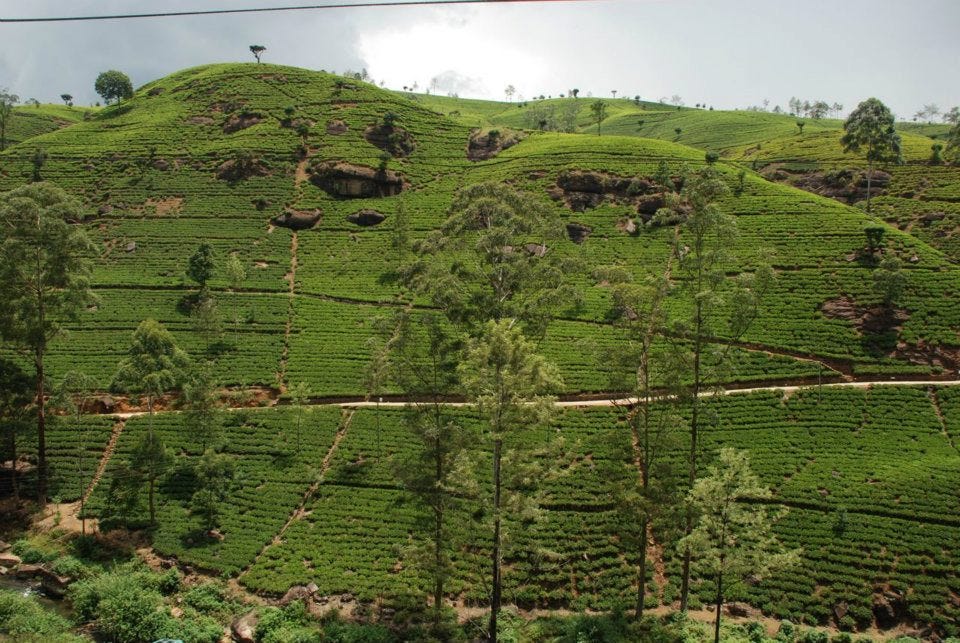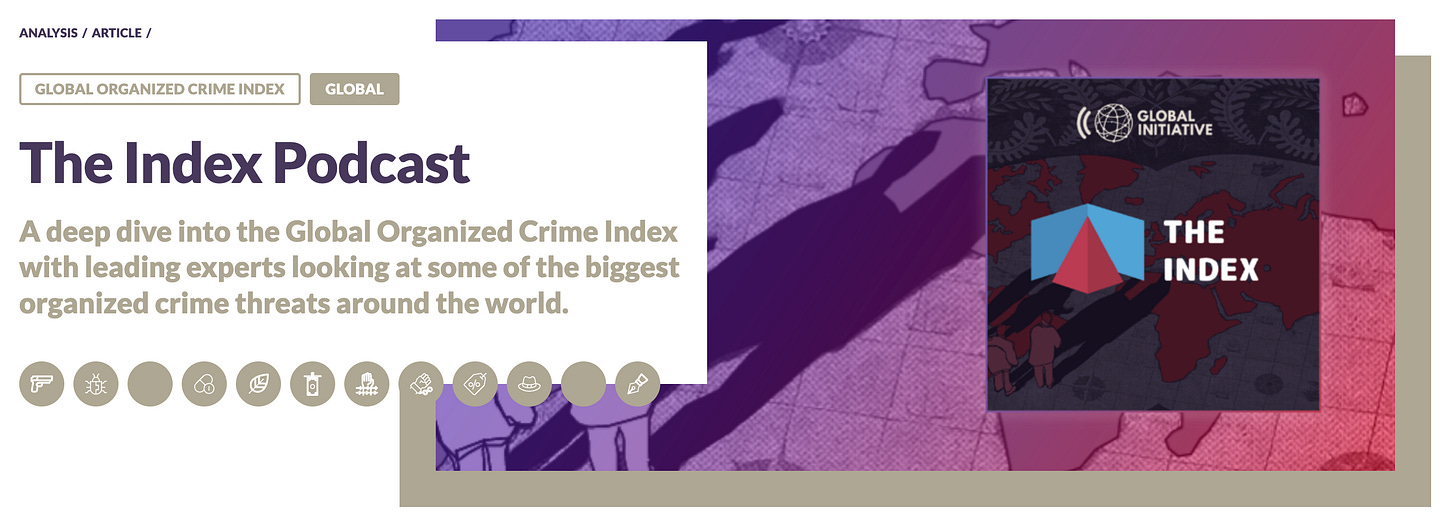A World of Pain
A newsletter about food systems, climate change and everything connected to them
(Sorry for the delay in sending this out. I’m travelling for work.)
I’m breathing a long, slow sigh of relief while typing this from a small, economy class seat on a flight across the Atlantic Ocean. I’m supposed to be in Washington, D.C. on Friday, April 22 to present these papers about the linkages between climate, migration and insecurity, including food insecurity.
But there was a massive, foreboding queue snaking its way out the door when I turned up at the airport in Rome this morning (this = Thursday, but yesterday/last week for you when you read this). Apparently, the airline’s systems were down and airport staff were checking in passengers manually. I was worried but not panicking – yet – because I thought I had a least two hours left.
Still, by the time I got to the counter, over an hour had passed, and I just wanted to get on the flight. But there was a problem: I hadn’t been cleared to board. I didn’t know what was going on. The check-in staff didn’t know what was going on. It took nearly an hour to discover the problem: a mismatch between the name on my visa and booking, partly due to the charming Burmese tradition of not having surnames.
The only option was to book another flight, but since the airline I was originally flying with didn’t have any ticket counters at the airport in Rome, it had to be done over the phone through my travel agent. My flight had left. The second one they tried to put me on had also left. The staff were very helpful and apologetic, but there really wasn’t anything more they could do.
When I checked in for the new flight, nearly three hours before departure, the check-in staff at the previous flight had moved there and, of course, they remembered me. They were again very kind and gave me great seats.
I have been flying all over the world for nearly two decades now, and this is the first time I’ve encountered this problem. But I managed to stay calm, thank everyone and arrange another flight. My new flight requires a transit and will bring me to D.C. some eight hours after I was first scheduled to arrive, but at least I’ll be there.
So I’m thankful that I made it. I’m thankful that the staff and officials from the airlines, the agency, and the embassy were as helpful as can be. I’m thankful I am in a situation to pay for another ticket. I’m thankful my husband was lurking not far from the airport and was able to pick me up for some fresh air in between the check-ins.
I’m finding things, big and small, to be thankful for, because as you’ll see below, many of us are in a world of pain right now, and I feel so darn fortunate to be where I am and doing what I’m doing. And yes, that means we’re back to the heavy stuff this week.
War – what is it good for?
In the sage words of Edwin Starr, absolutely nothing.
This 20-page briefing from a new group launched by the UN Secretary-General in March underlines that point vividly. It was published on April 13 and focuses on three key areas of impact: food, energy and financial systems.
The briefing states:
“1.7 billion people in the world live in in 107 economies that are severely exposed to at least one of this crisis’ three global channels of transmission – rising food prices, rising energy prices, and tightening financial conditions.”
“Of these 1.7 billion people, 553 million are already poor, and 215 million are already undernourished.”
“There is a group of ‘perfect-storm’ countries who are severely or significantly exposed to all three channels of transmission at once. 69 economies with 1.2 billion of the world’s people live in these countries.”
These economies are 25 in Africa, 25 in Asia Pacific and 19 in Latin America and the Caribbean.
Remember, the world was already reeling from multiple woes, including climate disasters, supply chain crunches and COVID-19-related economic downturn even before Russia decided to invade Ukraine, which unleashed a cascading effect that goes far beyond the borders of those two countries.
The briefing makes four main recommendations: 1) for countries to engage in multilateral discussions to address these issues collectively, 2) to recognise that solutions must be based on global risk, because the shocks are global too, 3) to use existing mechanisms to help countries directly and indirectly affected by the war, and 4) for everyone to pitch in to help the most vulnerable.
“In an environment of already high levels of socioeconomic stress due to the impacts of COVID-19, the rise in food prices threatens knock-on effects of social unrest. An UNCTAD analysis of historical data reveals that, in general, civil unrest and increases in agri-food commodity prices are highly correlated,” the briefing warns.
Farewell, The Counter
The Counter, one of the best news outlets covering the U.S. food system, is sadly shutting down after seven years. In an e-mail to subscribers, editor-in-chief Kate Cox said the site will cease publication on May 20 because of – you guessed it – insufficient funding.
The non-profit newsroom has published some standout pieces, from in-depth looks at regenerative agriculture to exposés on agricultural operation in correctional institutions. We will all be poorer for losing their spirited and passionate reporting.
In particular, this part in Kate’s e-mail cuts deep because that is what I believe too and why we should all care about all the different aspects of our foods and go beyond, “What’s for dinner?”.
Moral of the story – please support public service journalism. Our lives literally depend on it. In the meantime, go check out The Counter’s stories while you still can.
Organic pains?
I visited Sri Lanka many moons ago for Songkran (Thai New Year, which was last week, same as in Myanmar) holidays and came away in love with their fiery cuisine and verdant hills full of tea plantations. There’s also a streak of religious and nationalistic fervour that reminds me – not necessarily in a good way – of my own country, but that’s for another newsletter.
This beautiful country is now in the throes of the worst economic crisis it has seen since its independence over 60 years ago. Inflation is at an all-time high, the prices of basic food items are soaring and severe power cuts are looming. Many have blamed the woes on President Gotabaya Rajpaksha’s sudden and poorly thought-through plan to ban chemical fertilisers in a bid to turn Sri Lanka into a 100% organic farming nation.
But as this piece in The Conversation points out, the reality is much more complex. The country was already reeling from a combination of factors: COVID-19, an export-oriented economy, high dependence on food imports, a sharp drop in tourism, and ill-timed tax cuts, just to name a few.
Still, the abrupt switch to organic farming without proper planning also played a role, particularly in impoverishing farmers. A nationwide survey showed widespread support for the shift, but the process was too hasty and lacked a transition strategy or coordinating mechanisms, said international NGO GRAIN and the local group Movement for Land and Agricultural Reforms (MONLAR), both of whom support the ban on the use of agrochemicals and the move towards organic farming.
India’s Down To Earth news has a comprehensive piece pointing out the problems while debunking some of the myths, and here’s a very recent article from The Guardian which spoke to Sri Lankan farmers who are struggling to make ends meet.
Fancy a Negroni?
Here’s your quota of a light(ish) story in this week’s newsletter – how you can still sip your favourite cocktails and save the planet at the same time.
Okay, I exaggerated, but you have to admit the premise is promising. This Bloomberg story features drink companies who are changing the way their products are packaged and shipped to cut down on waste, emissions and energy use.
There’s Singapore-based EcoSpirits, which transports spirits in bulk and then decants it into smaller, reusable containers once it reaches the local market. There’s Colorado-based BrewVo, which extracts water and alcohol from beer before shipment and reconstitutes it at the destination. There’s London-based Packamama, whose lie-flat wine bottles are apparently 87% lighter and 40% smaller than traditional cylindrical glass ones.
So maybe you can’t yet sip your favourite cocktails and save the planet simultaneously, but at least you won’t be actively destroying the planet. A small step that deserves a glass of G&T, perhaps?
The Index has landed
Here’s a bit of random self-promotion that isn’t exactly related to food and climate.
Did you know that Kazakhstan is almost as big as India or that it is a key transit route for drugs and arms as well as a source, transit and destination for human trafficking?
Find out more about organised crime and resilience in this fascinating but little-known Central Asian country in the first episode of The Index, a new podcast I'm hosting which is based on the Global Organized Crime Index released late last year. Yes, I only ever do the fun, light stuff, don't I?
For the first episode, I interviewed Dr. Erica Marat, who is from a neighbouring country and has been studying the region for years, about the protests that roiled Kazakhstan earlier this year and how organised crime played a role.
As always, have a great weekend! Please feel free to share this post and send tips and thoughts on twitter @thinink, to my LinkedIn page or via e-mail thin@thin-ink.net.







Hey Thin - I hope all's well (long time no see!). I love the blog. Congrats on the food blog fellowship. I've just started writing about wine in Portugal where Ana and I are now living off the grid (I write about that too on Substack!)...and working on a podcast. Do come and see us if you're ever tempted to try bacalhau, migas or an Antão Vaz